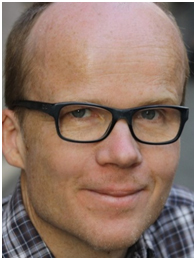Invited plenary speaker: Jochen Rau, Professor of Mathematics,
The RheinMain University of Applied Sciences
Quantum Probability and Quantum Computing
Quantum theory is commonly associated with the dynamics of microscopic particles and phenomena like atomic spectra, interference, or tunneling. Beyond such genuinely physical phenomena, however, quantum theory may also be viewed more broadly as a generalized probability theory. It is applicable to situations – not just in physics – where the outcomes of experimental tests depend on the order in which they are performed. The peculiar properties of this generalized probability theory are put to use in quantum computing, a novel form of information processing which allows one to solve some problems more efficiently than a classical computer. I will give an overview of these ideas and illustrate them with some simple examples.
About the Author:
Jochen Rau received degrees in physics and mathematics from Goethe University Frankfurt (Germany), University of Cambridge (UK), and Duke University (USA), and did postdoctoral research at Max Planck Institutes in Heidelberg and Dresden, at the European Centre for Theoretical Studies in Nuclear Physics and Related Areas, as well as at Technical University of Darmstadt. He left academia to pursue a career in industry, and subsequently returned about a decade later. He is currently professor of mathematics at the RheinMain University of Applied Sciences. In addition, he has taught theoretical physics at Goethe University Frankfurt and at Ulm University, Germany.
Professor Rau website can be found under this link
Invited plenary speaker: Jochen Rau, Professor of Mathematics,The RheinMain University of Applied Sciences

Quantum Probability and Quantum Computing
Quantum theory is commonly associated with the dynamics of microscopic particles and phenomena like atomic spectra, interference, or tunneling. Beyond such genuinely physical phenomena, however, quantum theory may also be viewed more broadly as a generalized probability theory. It is applicable to situations – not just in physics – where the outcomes of experimental tests depend on the order in which they are performed. The peculiar properties of this generalized probability theory are put to use in quantum computing, a novel form of information processing which allows one to solve some problems more efficiently than a classical computer. I will give an overview of these ideas and illustrate them with some simple examples.
About the Author:
Jochen Rau received degrees in physics and mathematics from Goethe University Frankfurt (Germany), University of Cambridge (UK), and Duke University (USA), and did postdoctoral research at Max Planck Institutes in Heidelberg and Dresden, at the European Centre for Theoretical Studies in Nuclear Physics and Related Areas, as well as at Technical University of Darmstadt. He left academia to pursue a career in industry, and subsequently returned about a decade later. He is currently professor of mathematics at the RheinMain University of Applied Sciences. In addition, he has taught theoretical physics at Goethe University Frankfurt and at Ulm University, Germany.Professor Rau website can be found under this link




